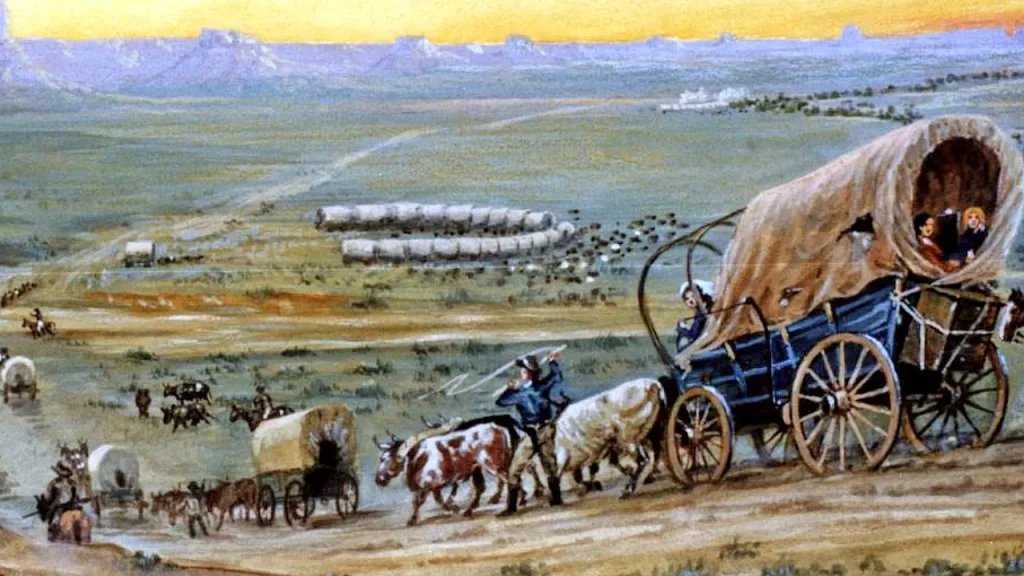
In a world where we are often known for our history and ancestors, some may migrate to other states after the war for better opportunities and a new life. Similarly, the thrilling story by Glenn Colby in “Journey Westward” offers a close hint into the trials and problems faced by families migrating westward in the 1850s. The author not only put the physical journey across the American border but delved deep into his characters’ emotional and psychological states. While set in a historical context, this story connects with the general themes of migration, adaptation, and hardships.
Colby’s story embraces the harsh realities of migration without hesitation. It highlights how families were displaced from familiar surroundings, facing the hard task of crossing vast and often hostile lands. The story of the Barritz and Lambert families starting their journey towards California shows the difficulties many faces during such massive migrations. The risk of illness, the scarcity of food and water, and the unexpected weather conditions were constants. Furthermore, the threat of robbery was real, as migrants often carried their life savings with them, making them major targets for robbers and corrupt people they met along the way. The readers can connect to how their ancestors must have faced similar situations when migrating, as it’s the harsh reality that many still faces.
Adaptation to a new lifestyle is another significant challenge. Colby masterfully pens down the emotional strain on families as they try to start themselves in a new land. Building homes, finding work, and mixing into new communities required effort and courage. The doubt of success in the gold fields and the difficulties of farming and business in a rough land marked the limits of many. Yet, this adaptation challenge highlighted the human capacity for growth and change. It helps the readers relate to the harsh realities of migration: moving for another job or a better lifestyle to prepare themselves for the worst.
The author does not idealize the journey westward. He candidly portrays the costs of migration, from the breakdown of families strained by hardship to the impact on natural populations lost by the flood of settlers. The book acknowledges the complex relationship of ambition and desperation that drove many to start a new life, often at great personal and ethical costs.
The themes explored in “Journey Westward” find a place in the modern experiences of migrants and refugees worldwide. The challenges of leaving behind the familiar, facing the uncertainties of travel, adapting to new cultures, and the risk of misuse are as relevant today as they were in the 1850s. Modern-day migrants face similar risks, including human trafficking and the dangers of risky journeys in search of a better life. However, as in his narrative, the promise of new opportunities and the potential for growth and wealth drive many individuals and families to begin these journeys. The courage and hope that describe human nature in the face of hardship are timeless. “Journey Westward” by Glenn Colby is more than a historical narrative; it reflects the human condition and migration challenges and the firm will to seek a better life against all odds. Readers journey with the Barritz and Lambert families and are reminded of the common truths that bind us across time and space. Also, the search for safety, prosperity, and the promise of a new beginning requires sacrifices, which we all have heard about throughout life. Thus, the readers can connect to it and practice it with a better approach in life.